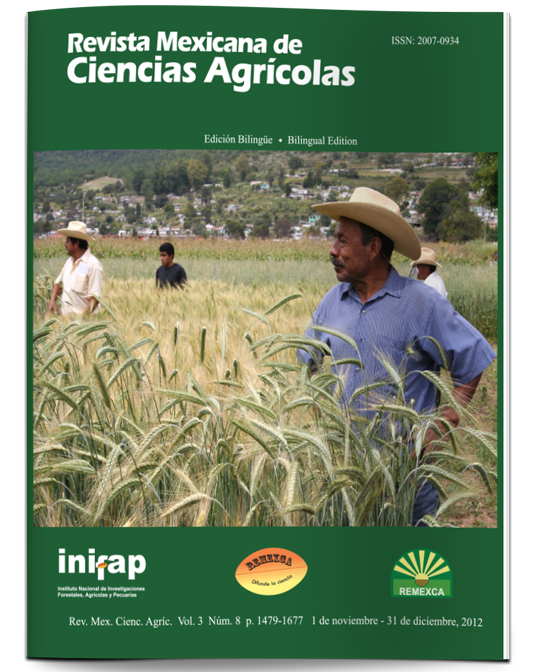Agro-ecology as an alternative food security for indigenous communities
DOI:
https://doi.org/10.29312/remexca.v4i8.1137Keywords:
Agro-ecology, food security, indigenous communitiesAbstract
The world economy is facing a global financial crisis; the capital accumulation model shows signs of exhaustion. This has resulted in the increase in food prices between April, 2007 and April, 2008; international food prices rose 54% in the main cereals (92%) and oil (84%). (FAO, FAOSTAT, index of food prices, Gómez, 2008) and the number of poor people has increased to such an extent that in 2010 it is considered that in the world, one billion people are hungry. FAO estimated that, the number of undernourished people in 2008 could have reached 915 million and will exceed 1000 million in 2009. (Un Millennium Goals Report 2010). The right to have food is a fundamental human right, and should seek alternatives to eliminate the scourge of hunger.
Downloads
Downloads
Published
How to Cite
Issue
Section
License
The authors who publish in Revista Mexicana de Ciencias Agrícolas accept the following conditions:
In accordance with copyright laws, Revista Mexicana de Ciencias Agrícolas recognizes and respects the authors’ moral right and ownership of property rights which will be transferred to the journal for dissemination in open access. Invariably, all the authors have to sign a letter of transfer of property rights and of originality of the article to Instituto Nacional de Investigaciones Forestales, Agrícolas y Pecuarias (INIFAP) [National Institute of Forestry, Agricultural and Livestock Research]. The author(s) must pay a fee for the reception of articles before proceeding to editorial review.
All the texts published by Revista Mexicana de Ciencias Agrícolas —with no exception— are distributed under a Creative Commons License Attribution-NonCommercial 4.0 International (CC BY-NC 4.0), which allows third parties to use the publication as long as the work’s authorship and its first publication in this journal are mentioned.
The author(s) can enter into independent and additional contractual agreements for the nonexclusive distribution of the version of the article published in Revista Mexicana de Ciencias Agrícolas (for example include it into an institutional repository or publish it in a book) as long as it is clearly and explicitly indicated that the work was published for the first time in Revista Mexicana de Ciencias Agrícolas.
For all the above, the authors shall send the Letter-transfer of Property Rights for the first publication duly filled in and signed by the author(s). This form must be sent as a PDF file to: revista_atm@yahoo.com.mx; cienciasagricola@inifap.gob.mx; remexca2017@gmail.
This work is licensed under a Creative Commons Attribution-Noncommercial 4.0 International license.



